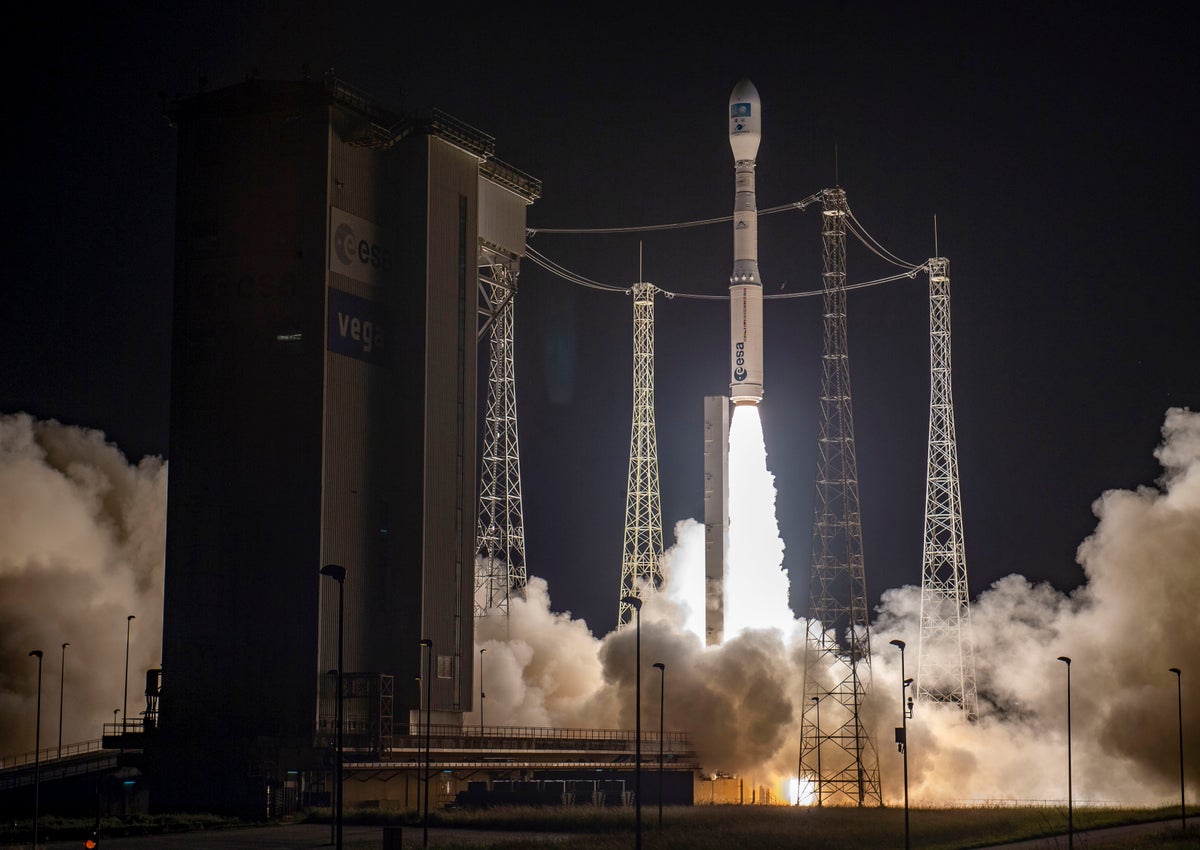
The launch of a European Vega C rocket carrying two Airbus satellites failed less than three minutes after lift-off from the European base in French Guiana on Wednesday.
Arianespace, which provided the launch service, said in a statement that “an anomaly occurred” approximately 2 minutes and 27 seconds after liftoff, "thus ending the Vega C mission.”
It did not give any further information, but planned to hold a news conference Wednesday afternoon.
“Data analyses are in progress to determine the reasons of this failure,” it said.
It was the first commercial launch of a Vega C rocket, Europe’s light launcher capable of lifting about 800 kilograms (1,700 pounds) into space.
The launch, operated by the European Space Agency, was meant to take two earth observation satellites made by Airbus, Pleiades Neo 5 and 6, into orbit. The satellites would have been part of a constellation capable of taking images of any point of the global with a resolution of 30 centimeters (11.8 inches).
The rocket successfully made its inaugural journey on July 13.
The Vega C development program has been managed by ESA and associates 12 of the 22 members states of the agency.







